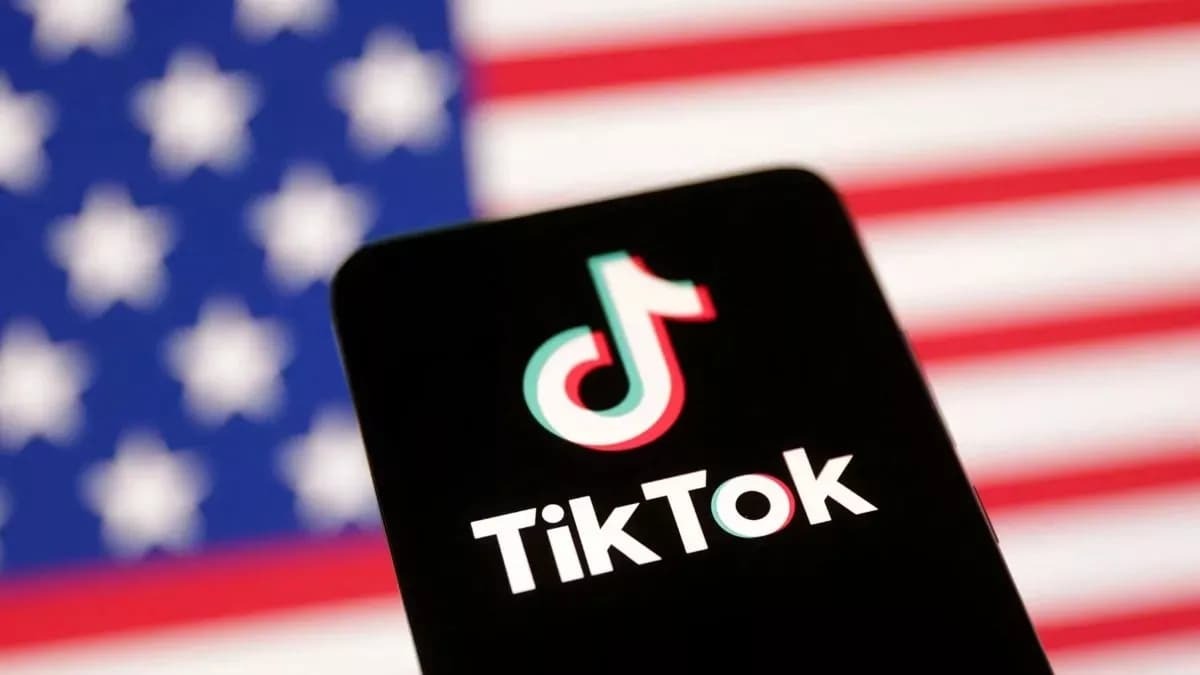
It is almost certain that TikTok will be banned in the US. If this happens, then after India, this video platform will be banned in another democratic country. It is worth noting that TikTok was banned in India since June 2020.
At the same time, the Supreme Court may give its verdict on a possible TikTok ban in the US on Wednesday. Last Friday, the judges indicated that they could uphold the federal law.
The ban will take effect on January 19, the day before President Trump's inauguration, unless President Biden extends the deadline or Congress passes a new bill introduced on Monday that would give the social media app's Chinese parent company ByteDance an additional 270 days to divest or sell the U.S. version of the ByteDance platform to American owners.
Although ByteDance has indicated it has no intention of selling TikTok, billionaires including Frank McCourt have been making noises about buying it.
Notably, according to Bloomberg, the Chinese government is reportedly eyeing Elon Musk as a potential buyer of TikTok. (TikTok has called this rumored deal "completely fictitious.")
How much will TikTok cost?
McCourt, the former L.A. Dodgers owner who is leading a group bidding for TikTok through his Project Liberty, has said he thinks TikTok’s U.S. business is worth $20 billion.
That's for a business that doesn't have a powerful "recommendation engine" that suggests new videos, which McCourt says he doesn't want and which ByteDance will probably never sell. With algorithms, Wedbush analyst Dan Ives thinks $300 billion "may be conservative." Most put the valuation somewhere in between.
TikTok is particularly difficult to value. Not only is there the question of valuable algorithms, but also the fact that it is currently a division of a private company based in China and, to complicate things even more, TikTok is technically a subsidiary of shell companies registered in the financially opaque Cayman Islands, making it nearly impossible for outsiders to know how much revenue TikTok makes in the US, let alone how much profit it makes.
The Chinese government also holds a small but highly influential share of one of ByteDance's other businesses. China has repeatedly stressed that its ability to influence the business is limited to operations outside the US, but the Chinese government would have to approve any sale.
Forced sales during the temporary ban would also impact how much someone might pay for TikTok. Lawyers for TikTok and ByteDance wrote in court documents that a one-month shutdown could lead to a 29% drop in TikTok's global ad revenue year over year.
There are also potential costs associated with a sale. TikTok would need to build a lot of new infrastructure, which it would lose from its parent company in a potential spinoff, says Gil Luria, an analyst at D.A. Davidson. Pricing would also be limited by the accelerated process and the need to buy the entire franchise, unlike an IPO, which significantly limits the number of potential buyers.
Taking these complexities into account, here are four possible ways to evaluate TikTok:
1. Frank McCourt's $20 billion proposal
An investor group led by real estate billionaire Frank McCourt, who once owned the LA Dodgers, thinks they will be able to buy TikTok in the US without the algorithm for $20 billion. That's roughly the same as the enterprise value of rival Snapchat. McCourt did not respond to a request for comment, but benchmark analyst Mark Jagutowicz says one way to arrive at that number is to value TikTok based on a multiple of the number of users. Twenty billion dollars equates to about $120 for each of TikTok's 170 million US users. That's between comparable ratios for Snapchat and Meta.
2. Multiple Magic of the Market
A common way to value a consumer tech company like TikTok is as a multiple of revenue. TikTok generates revenue from advertising, livestreaming video, and e-commerce. In Singapore, where good data is available, the latter two categories made up 83% of 2023 revenue. While TikTok published 2023 revenue of about $13 billion for its two other main subsidiaries registered outside China, it does not disclose its sales to the U.S. Let's assume U.S. revenue was $16 billion in 2023, as the Financial Times reported citing unnamed sources, and ByteDance's revenue outside China grew at least 40% in the first half of 2024, as The Information reported citing informed sources. This gives us a rough estimate of $22 billion in U.S. sales in 2024.
Analysts Jagutowicz and Luria then recommended an enterprise value to revenue multiple of six times, which is between Snap (3.5x) and Meta (8x). Applying this to revenue estimates of $22 billion would yield an estimated valuation of $132 billion. This includes TikTok's algorithm.
3. The $300 Billion Golden Algorithm
ByteDance's machine-learning-powered algorithm is uniquely good at capturing user behavior and engaging users by recommending personalized content, such as new videos to watch. While ByteDance is unlikely to sell it and there's no real precedent for valuing the algorithm separately from the operating company, some analysts have thought about it. For Wedbush's Ives, the algorithm is like gold -- he thinks TikTok would be worth $300 billion with it, emphasizing the ad revenue potential from "200 million potentially highly engaged U.S. customers."
4. The Basics
Benchmark's Jagutowicz believes TikTok's U.S. revenue is less than the FT reported - about $13 billion - and he estimates it is worth about $55 billion without the algorithm. Ives also believes it is worth just $40 billion to $50 billion without the algorithm.
--Advertisement--

 Share
Share



